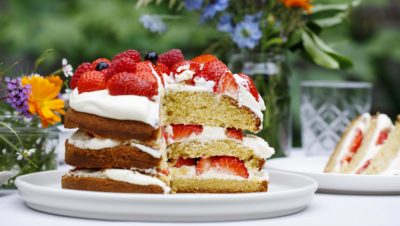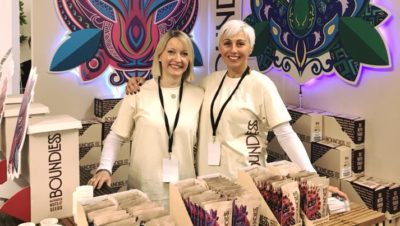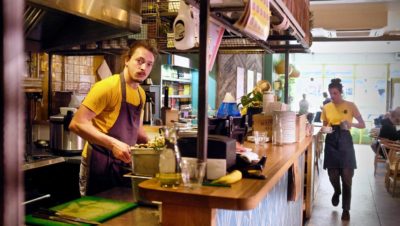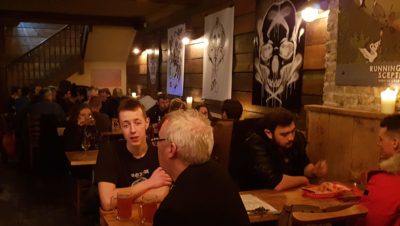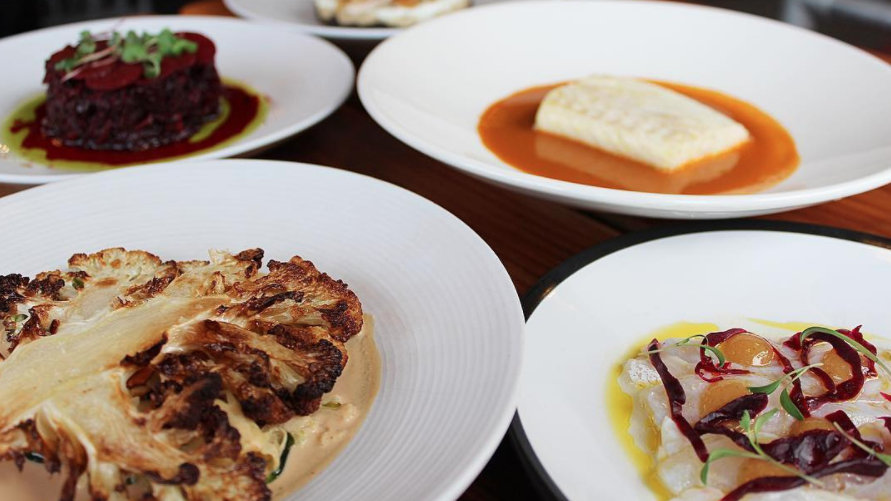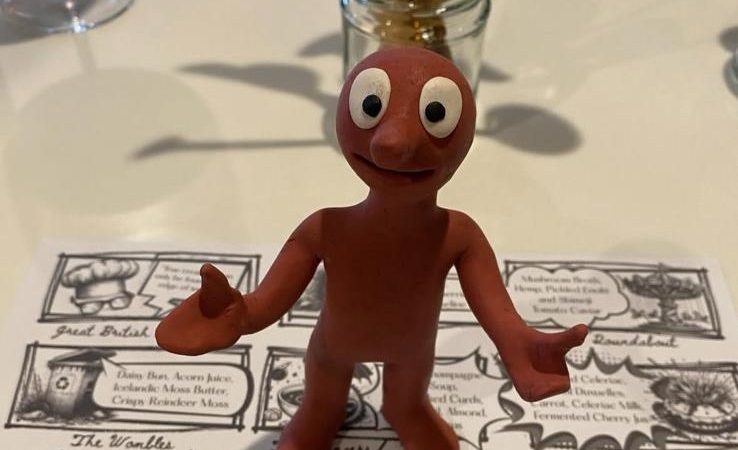
Features / chefs
Inspiring stories with every mouthful
On the table there are is a brass coloured fork and knife in addition to a number of unusual tools: a wooden spoon suitable only for pretend cooking, an even smaller wooden spoon and a paintbrush.
Accompanying them is a piece of card with a comic strip, otherwise known as tonight’s menu.
In black and white, it details the ten courses that will be taking us on a trip down memory lane to revisit British animations, from old classics like Bagpuss and The Clangers, to more contemporary gems like the Magic Roundabout and Paddington.
is needed now More than ever
The Great British Animation menu draws on inspiration from the contents of these shows and films, which are then transformed into edible versions that will have you feeling like you stepped right into an igloo with Pingu.
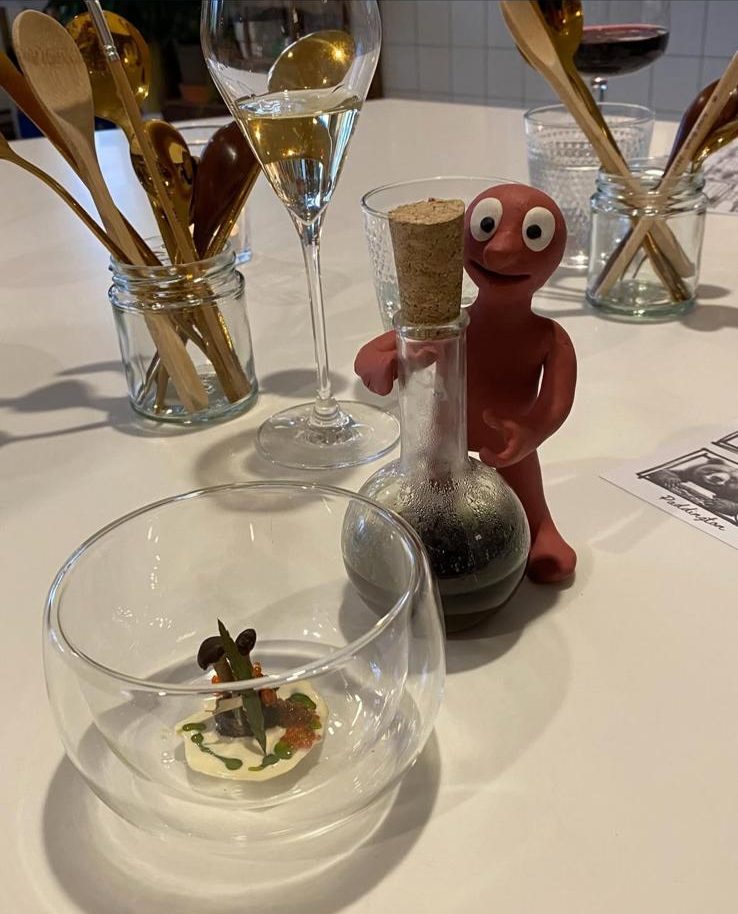
Pickled enoki and shimeji tomato caviar and hemp in a mushroom broth – photo: Liam Penn
There is no meat on the menu, everything is plant based, usually grown or foraged by the chef and creator Liam Penn.
It’s “all encompassing,” he describe it as. The goal is to be as creative and experimental as possible.
But these dishes aren’t just for your tastebuds, they are a feast for the eyes as Liam brings out the moon from Wallace and Gromit in a Japanese planet volcanic stone case that opens to reveal the dish sat upon some gurgling dry ice.
The chef of 15 years encourages his diners to eat how they want, to use whichever utensil take their fancy – if any – and play.
Whether you wear the red fedora hat that arrives in place of a silver serving dish lid, or use the paint brush to spread the blood red pickled raspberry in the dish inspired by Animal Farm – there is no right way to have your food, just enjoy.
If you take a second to look around the room, you will see guests with Paddington’s fedora on their heads, playing with the foam from their reconstructed pie inspired by Chicken Run.
In a different themed menu that Liam did, the ‘Valentines Menu,’ he intentionally gave them ladle like spoons to feed one another.
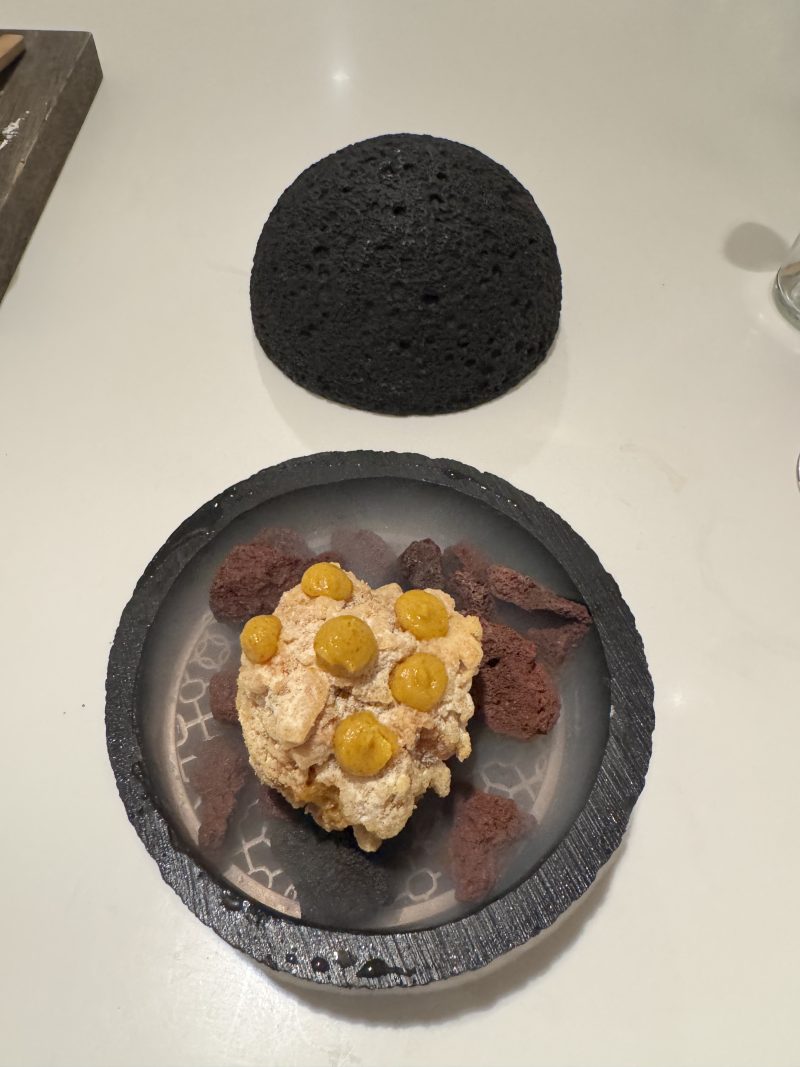
Piccalilli gel dots the crust of the super crunchy penicillium camemberti that encases cultured potato inside – photo: Hannah Massoudi
Nourishing people and telling stories are things that Liam believes we have lost over the years. Taking it way back to when we sat around fires and recounted tales of the day to entertain and amuse.
“I feel like food really is such an important and integral part of human life,” he says.
Liam doesn’t just tell stories with his food, he comes out before each course to explain the story behind it and answer questions.
Once everyone has supped, he comes round to collect the dishes (alongside the wait staff) and listens to his guest’s own stories and their memories that the food has brought out, like for example the first time they watched The Wombles and how that made them feel.
Or the first time they watched Paddington with their children.
He thinks chefs don’t do this enough, so years ago he made it his focus to lead with stories.
The level of research and experimentation that goes into Liam’s cooking – he acknowledges – is insane.
For the Great British Animation he watched every film and every every episode of every show that is included in the menu. Which as an adult brings an interesting – to say the least – perspective to childhood classics.
Pingu for example he tells us, he always recalled as being annoying with his constant ‘noots noots’, but rewatching it he felt sympathy for the penguin and reconsidered his noots proportional.
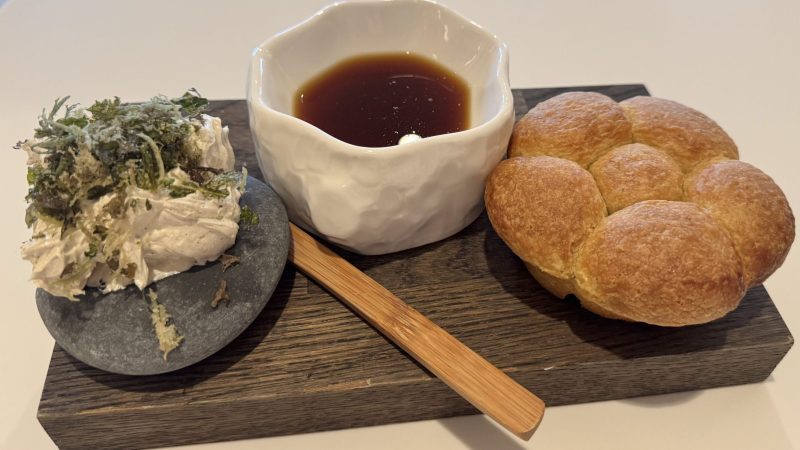
Inspired by The Wombles: A daisy bun with an acorn juice dip, alongside Icelandic moss butter with crispy, salty reindeer moss on top – photo: Hannah Massoudi
Conversely rewatching Pingu seems light work compared to the research done for the ‘Historical Menu.’
The menu took guests through a each century with a singular memorable dish, starting off prehistory, then to the Roman period, and so on.
A trip to the Bristol Archives was a regular occurrence, and there he found a dish from the first cookbook ever written in English, a form of curry.
Moving through the years to the 16 and 1700s he discovered one of the first pubs in Bristol’s menus in the Archives and was able to look over an original in person.
The dish was ‘ mock turtle soup.’
He says that there were turtles living in Bristol Harbour which people were eating but then it disappeared off of menus.
So, there was a mystery around what mock turtle was and what it tasted like.
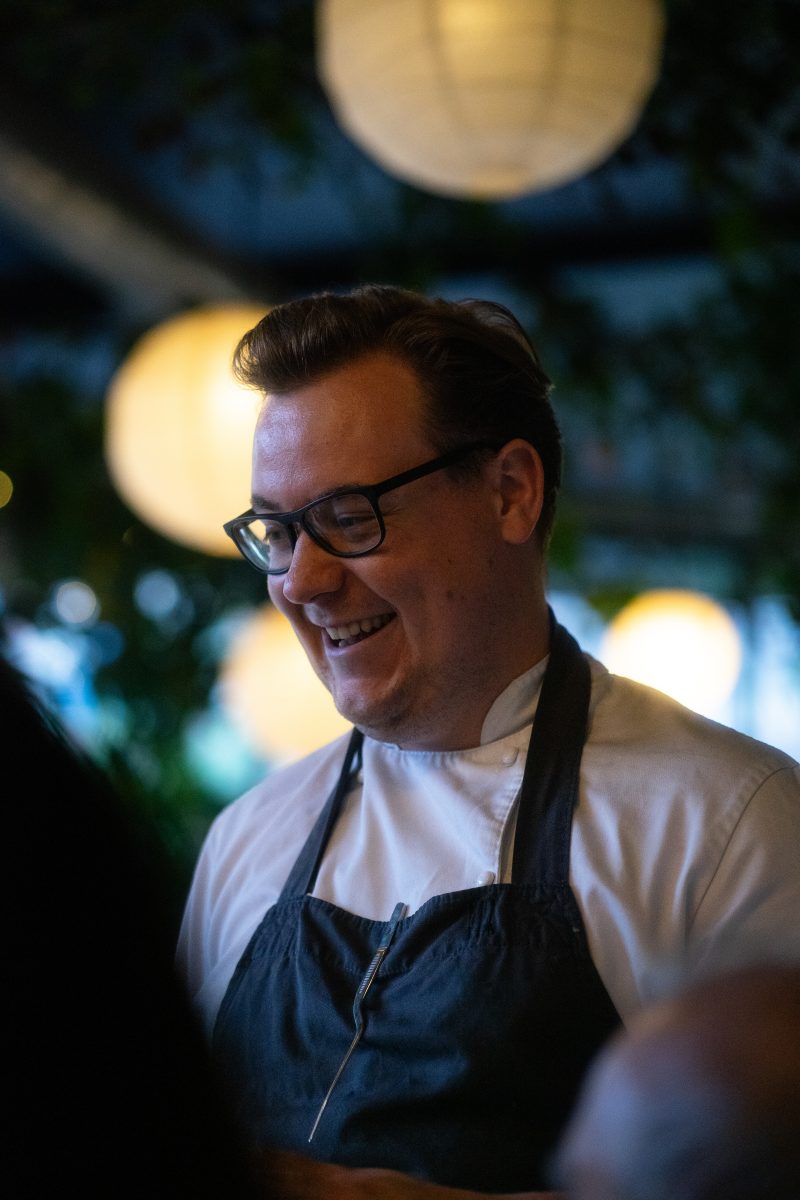
For his Roald Dahl menu, Liam tore pages out and affixed them to a mood board in the kitchen – photo: Liam Penn
The Weston-Super-Mare born talent, has travelled the world doing food alongside the most extraordinary of chefs pushing the boundaries of what is possible, like the great Heston Blumenthal.
“Food is science,” he says and he’s curious about understanding it on a molecular level.
He has learnt to hold is own in the kitchen, especially as a vegetarian chef.
He regales his guests of the time he worked in a kitchen in France, a country known for its love of butter among other things, the resident head chef would throw a wooden spoon his way on the few occasions things were not up to scratch.
They underestimated him and saw his skills as lesser for being vegetarian.
But he saw this, alongside the poor vegetarian/vegan options available in the mid to late 2000s, as a challenge.
A challenge to raise the bar for plant based food, so that it could be fine dining.
Now living in Bristol, he’s looking to the future, and he sees in it his own restaurant.
View this post on Instagram
If you want to join Liam for his next tasting adventure, he will be revisiting Roald Dahl’s stories, which will be announced soon on his website and on Instagram.
Or catch the last date of the Great British Animation on August 9, before they sell out.
Main photo: Liam Penn
Read next:
 Our newsletters emailed directly to you
Our newsletters emailed directly to you












